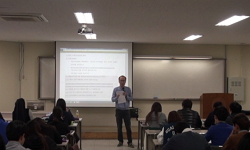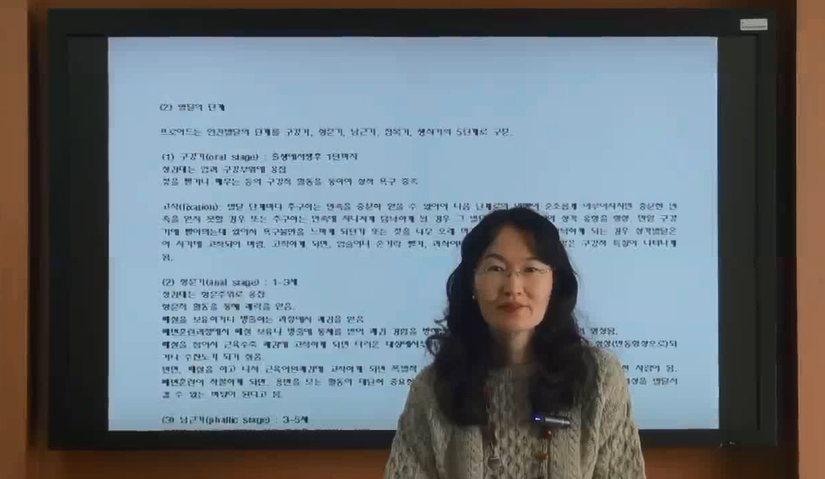This paper explores Derrida’s politics by examining ‘she-wolf’ as ‘manifestation without manifestation’ and the pas de loup meaning ‘the stealthy step of the wolf’ in Derrida’s last seminar, The Beast and the Sovereign I(2009). Even th...
http://chineseinput.net/에서 pinyin(병음)방식으로 중국어를 변환할 수 있습니다.
변환된 중국어를 복사하여 사용하시면 됩니다.
- 中文 을 입력하시려면 zhongwen을 입력하시고 space를누르시면됩니다.
- 北京 을 입력하시려면 beijing을 입력하시고 space를 누르시면 됩니다.
https://www.riss.kr/link?id=A60020832
- 저자
- 발행기관
- 학술지명
- 권호사항
-
발행연도
2011
-
작성언어
-
- 주제어
-
KDC
840
-
등재정보
KCI등재
-
자료형태
학술저널
- 발행기관 URL
-
수록면
201-233(33쪽)
- 제공처
-
0
상세조회 -
0
다운로드
부가정보
다국어 초록 (Multilingual Abstract)
Différance retains the sense of difference not only in language but also in ipseity or selfness. One’s home is always already haunted by the trace of the other, as secret or unheimlich space within home disturbs my being at home. ‘I’ am, thus, under the effect of différance. Just as the term différance has been displaced as hospitality, forgiveness, democracy to come, justice, spectrality and so on in his various texts, in this seminar, Derrida newly introduces the pas de loup, which announces the proximity of an animal or human: the wolf itself is named there in absence, as it were; the wolf is named where you don’t hear or see it coming; it is still absent, save for its name.
In fact, the sovereignty in this text is part of the larger question of ‘ipseity’, the possibility of selfhood. Through a detailed reading of La Fontaine’s The Wolf and the Lamb, Freud’s ‘wolf-man’, Hobbes’s Leviathan, etc., Derrida argues the sovereign often takes the form of an artificial animal, a divine animal, a human who becomes a wolf or a werewolf, which leads us to call into question the distinction of human/animal, which shows ‘ipseity’ is a threshold space of the self(le souverain) and the other(la bête). Derrida further elaborates on the theme of pas de loup by suggesting that he would want to claim that a decision is always made in the name of the other, “of the absolute other in me or the other as the absolute that decides in me”.
The living is, thus, a matter not of those who live but that which lives, or the absolute ipseity to live a politically responsible life. In this context, political responsibility is not simply a movement toward the other, but a movement toward the ‘I’, my responsibility toward the other. His conclusion is not “to pay homage to some obscurantism of nonknowledge, but to prepare perhaps a political event for ourselves between la bête and le souverain.
This paper explores Derrida’s politics by examining ‘she-wolf’ as ‘manifestation without manifestation’ and the pas de loup meaning ‘the stealthy step of the wolf’ in Derrida’s last seminar, The Beast and the Sovereign I(2009). Even though he did not write explicitly about politics or political concepts before the publication of Specters of Marx, there have always already been the political implications in such concepts as différance and trace of Derrida’s early texts.
Différance retains the sense of difference not only in language but also in ipseity or selfness. One’s home is always already haunted by the trace of the other, as secret or unheimlich space within home disturbs my being at home. ‘I’ am, thus, under the effect of différance. Just as the term différance has been displaced as hospitality, forgiveness, democracy to come, justice, spectrality and so on in his various texts, in this seminar, Derrida newly introduces the pas de loup, which announces the proximity of an animal or human: the wolf itself is named there in absence, as it were; the wolf is named where you don’t hear or see it coming; it is still absent, save for its name.
In fact, the sovereignty in this text is part of the larger question of ‘ipseity’, the possibility of selfhood. Through a detailed reading of La Fontaine’s The Wolf and the Lamb, Freud’s ‘wolf-man’, Hobbes’s Leviathan, etc., Derrida argues the sovereign often takes the form of an artificial animal, a divine animal, a human who becomes a wolf or a werewolf, which leads us to call into question the distinction of human/animal, which shows ‘ipseity’ is a threshold space of the self(le souverain) and the other(la bête). Derrida further elaborates on the theme of pas de loup by suggesting that he would want to claim that a decision is always made in the name of the other, “of the absolute other in me or the other as the absolute that decides in me”.
The living is, thus, a matter not of those who live but that which lives, or the absolute ipseity to live a politically responsible life. In this context, political responsibility is not simply a movement toward the other, but a movement toward the ‘I’, my responsibility toward the other. His conclusion is not “to pay homage to some obscurantism of nonknowledge, but to prepare perhaps a political event for ourselves between la bête and le souverain.
동일학술지(권/호) 다른 논문
-
- 한국비평이론학회
- 여건종(Keonjong Yoh)
- 2011
- KCI등재
-
- 한국비평이론학회
- 윤화영(Hwa-young Yoon)
- 2011
- KCI등재
-
- 한국비평이론학회
- 이명호(Myungho Lee)
- 2011
- KCI등재
-
- 한국비평이론학회
- 이석구(Suk Koo Rhee)
- 2011
- KCI등재





 스콜라
스콜라






